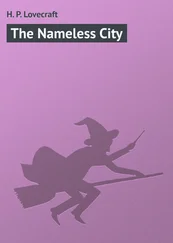Maurus Jokai - The Nameless Castle
Здесь есть возможность читать онлайн «Maurus Jokai - The Nameless Castle» весь текст электронной книги совершенно бесплатно (целиком полную версию без сокращений). В некоторых случаях можно слушать аудио, скачать через торрент в формате fb2 и присутствует краткое содержание. Город: New York, Год выпуска: 1898, Издательство: Doubleday, Page & Company, Жанр: Историческая проза, на английском языке. Описание произведения, (предисловие) а так же отзывы посетителей доступны на портале библиотеки ЛибКат.
- Название:The Nameless Castle
- Автор:
- Издательство:Doubleday, Page & Company
- Жанр:
- Год:1898
- Город:New York
- ISBN:нет данных
- Рейтинг книги:4 / 5. Голосов: 1
-
Избранное:Добавить в избранное
- Отзывы:
-
Ваша оценка:
- 80
- 1
- 2
- 3
- 4
- 5
The Nameless Castle: краткое содержание, описание и аннотация
Предлагаем к чтению аннотацию, описание, краткое содержание или предисловие (зависит от того, что написал сам автор книги «The Nameless Castle»). Если вы не нашли необходимую информацию о книге — напишите в комментариях, мы постараемся отыскать её.
The Nameless Castle — читать онлайн бесплатно полную книгу (весь текст) целиком
Ниже представлен текст книги, разбитый по страницам. Система сохранения места последней прочитанной страницы, позволяет с удобством читать онлайн бесплатно книгу «The Nameless Castle», без необходимости каждый раз заново искать на чём Вы остановились. Поставьте закладку, и сможете в любой момент перейти на страницу, на которой закончили чтение.
Интервал:
Закладка:
CHAPTER II
Count Vavel had made his fair neighbor at the manor the object of study. He had ample time for the task; he had nothing else to do. And, as he was debarred from making direct inquiries concerning her, or from hearing the current gossip of the neighborhood, he learned only that about her which his telescope revealed; and from this, with the aid of his imagination, he formed a conclusion—and an erroneous one, very probably.
His neighbor lived in strict seclusion, and was a man-hater. But, for all that, she was neither a nun nor an Amazon. She was a true woman, neither inconsolably melancholy nor wantonly merry. She proved herself an excellent housewife. She rose betimes mornings, sent her workmen about their various tasks, saw that everything was properly attended to. Very often she rode on horseback, or drove in a light wagon, to look about her estate. She had arranged an extensive dairy, and paid daily visits to her stables. She did not seem aware that an attentive observer constantly watched her with his telescope from the tower of the Nameless Castle. So, at least, it might be assumed; for the lady very often assisted in the labor of the garden, when, in transplanting tulip bulbs, she would so soil her pretty white hands to the wrists with black mold that it would be quite distressing to see them. Certainly this was sufficient proof that her labor was without design.
And, what was more to the purpose, she acted as if perfectly unaware of the fact that a lady lived in the Nameless Castle who possibly might be the wife of her tenant. Common courtesy and the conventional usages of society demanded that the lady who took up a residence anywhere should call on the ladies of the neighborhood—if only to leave a card with the servant at the door. The baroness had omitted this ceremony, which proved that she either did not know of Marie’s hiding-place, or that she possessed enough delicacy of feeling to understand that it would be inconvenient to the one concerned were she to take any notice of the circumstance. Either reason was satisfactory to Count Vavel.
But a woman without curiosity!
Meanwhile the count had learned something about her which might be of some use to Marie.
He had received, during the winter, a letter from the young law student with whom he had become acquainted on the occasion of the vice-palatine’s unpleasant visit to the castle. The young man wrote to say that he had passed his examination, and that when he should receive the necessary authority from the count he would be ready to proceed to the business they had talked about.
The count replied that a renewal of his lease was not necessary. The new owner of the castle having neglected to serve a notice to quit within the proper time, the old contracts were still valid. Therefore, it was only necessary to secure the naturalization documents, and to purchase a plot of ground on the shore of the lake. The young lawyer arranged these matters satisfactorily, and the count had nothing further to do than to appoint an absentium ablegatus to the Diet, and to take possession of his new purchase, which lay adjacent to the Nameless Castle.
The count at once had the plot of ground inclosed with a high fence of stout planks, engaged a gardener, and had it transformed into a beautiful flower-garden.
Then, when the first spring blossoms began to open, he said to Marie, one balmy, sunshiny afternoon: “Come, we will take a promenade.”
He conducted the veiled maiden through the park, along the freshly graveled path to the inclosed plot of ground.
“Here is your garden,” he said, opening the gate. “Now you, too, own a plot of ground.”
Count Vavel had expected to see the little maid clap her hands with delight, and hasten to pluck the flowers for a nosegay.
Instead, however, she clung to his arm and sighed heavily.
“Why do you sigh, Marie? Are you not pleased with your garden?”
“Yes; I think it beautiful.”
“Then why do you sigh?”
“Because I cannot thank you as I wish.”
“But you have already thanked me.”
“That was only with words. Tell me, can any one see us here?”
“No one; we are alone.”
At these words the little maid tore the veil from her face, and for the first time in many years God’s free sunlight illumined her lovely features. What those features expressed, what those eyes flashed through their tears, that was her gratitude.
When she had illumined the heart of her guardian with this expressive glance, she was about to draw the veil over her face again; but Ludwig laid a gently restraining hand on hers, and said: “Leave your face uncovered, Marie; no one can see it here; and every day for one hour you may walk thus here, without fear of being seen, for I shall send the gardener elsewhere during that time.”
When they were leaving the garden, Marie plucked two forget-me-nots, and gave one of them to Ludwig. From that day she had one more pleasure: the garden, a free sight of the sky, the warmth of the sunlight—enjoyments hitherto denied her; but, all the same, the childlike cheerfulness faded more and more from her countenance.
Ludwig, who was distressed to see this continued melancholy in the child’s face, searched among his pedagogic remedies for a cure for such moods. A sixteen-year-old girl might begin the study of history. At this age she would already become interested in descriptions of national customs, in archaeological study, in travels. He therefore collected for Marie’s edification quite a library, and became a zealous expounder of the various works.
In a short time, however, he became aware that his pupil was not so studious as she had been formerly. She paid little heed to his learned discourses, and even neglected to learn her lessons. For this he was frequently obliged to reprove her. This was a sort of refrigerating process. For an instructor to scold a youthful pupil is the best proof that he is a being from a different planet!
One day the tutor was delineating with great eloquence to his scholar—who, he imagined, was listening with special interest—the glorious deeds of heroism performed by St. Louis, and was tracing on the map the heroic king’s memorable crusade. The scholar, however, was writing something on a sheet of paper which lay on the table in front of her.
“What are you writing, Marie?”
The little maid handed him the sheet of paper. On it were the words:
“Dear Ludwig, love me.”
Map and book dropped from the count’s hands. The little maid’s frank, sincere gaze met his own. She was not ashamed of what she had written, or that she had let him read it. She thought it quite in the order of things.
“And don’t I love you?” exclaimed Ludwig, with sudden sharpness. “Don’t I love you as the fakir loves his Brahma—as the Carthusian loves his Virgin Mary? Don’t I love you quite as dearly?”
“Then don’t love me—quite so dearly,” responded Marie, rising and going to her own room, where she began to play with her cats. From that hour she would not learn anything more from Ludwig.
The young man, however, placed the slip of paper containing the words, “Dear Ludwig, love me,” among his relics.
Since the new mistress’s advent in the neighboring manor Count Vavel had spent more time than usual in his observatory. At first suspicion had been his motive. Now, however, there was a certain fascination in bringing near to him with his telescope the woman with whom he had exchanged only written communication. If he was so eager to behold her, why did he not go to the manor? Why did he look at her only through his telescope? She would certainly receive his visits; and what then?
This “what then?” was the fetter which bound him hand and foot, was the lock upon his lips. He must make no acquaintances. Results might follow; and what then?
Читать дальшеИнтервал:
Закладка:
Похожие книги на «The Nameless Castle»
Представляем Вашему вниманию похожие книги на «The Nameless Castle» списком для выбора. Мы отобрали схожую по названию и смыслу литературу в надежде предоставить читателям больше вариантов отыскать новые, интересные, ещё непрочитанные произведения.
Обсуждение, отзывы о книге «The Nameless Castle» и просто собственные мнения читателей. Оставьте ваши комментарии, напишите, что Вы думаете о произведении, его смысле или главных героях. Укажите что конкретно понравилось, а что нет, и почему Вы так считаете.












